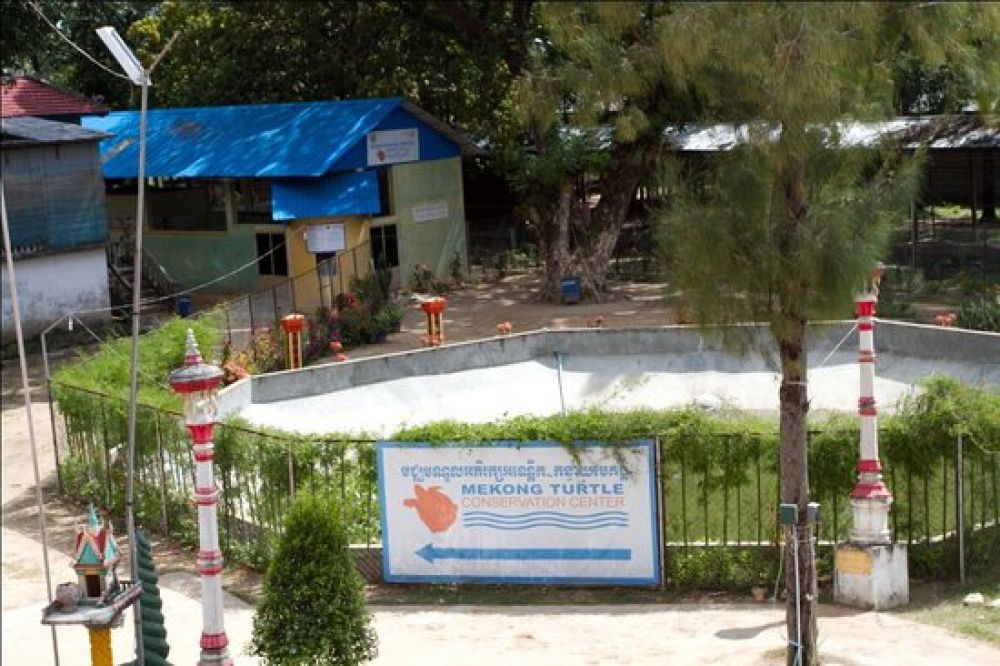

The Mekong Turtle Conservation Center (MTCC), located in the northerly Cambodian province of Kratie, has a relatively recent history in the sphere of tourism and environmental conservation. Founded in 2011, the center has a dual focus on protecting endangered turtle species and educating visitors about the importance of conservation efforts. Its establishment addresses both a conservation exigency and seeks to cater to the growing demand for ecotourism experiences.
The primary aim of the MTCC was to safeguard the remaining population of the critically endangered Cantor's giant softshell turtle, also known as the Mekong softshell turtle (Pelochelys cantorii), along with other local species. By engaging both locals and international tourists in its mission, the center has leveraged tourism for conservation outcomes.
Initially, the center served primarily as a conservation institution rather than as a tourist destination. The local monks at the hundred-year-old Wat Sor Sor Mouy Roy temple partnered with the conservation NGO, Conservation International, to establish the center after a small number of Cantor's giant softshell turtle nests were discovered. The temple grounds provided a safe haven for the turtle hatchlings.
As word spread about the center's work, it began to attract visitors who were interested in wildlife and wanted to contribute to its noble cause. The MTCC added interactive and educational elements for visitors, including the chance to release hatchlings during certain times of the year, and engagement programs highlighting the impact of local conservation efforts.
In the years since its opening, the Mekong Turtle Conservation Center has become a competent player in the eco-tourism sector. Ecotourism and responsible travel have grown significantly in popularity, and MTCC stands as a model for how conservation efforts can align with tourism interests to create mutually beneficial results for both nature and the economy.
Recent trends in tourism at the center include:
While challenges such as habitat destruction and the illegal wildlife trade continue to threaten species in the Mekong region, the Mekong Turtle Conservation Center stands as a beacon of hope and an example of successful community-based conservation supported by tourism. Its continued success is vital not only for the turtle species it protects but also for the communities that benefit from the responsible tourism that it facilitates.